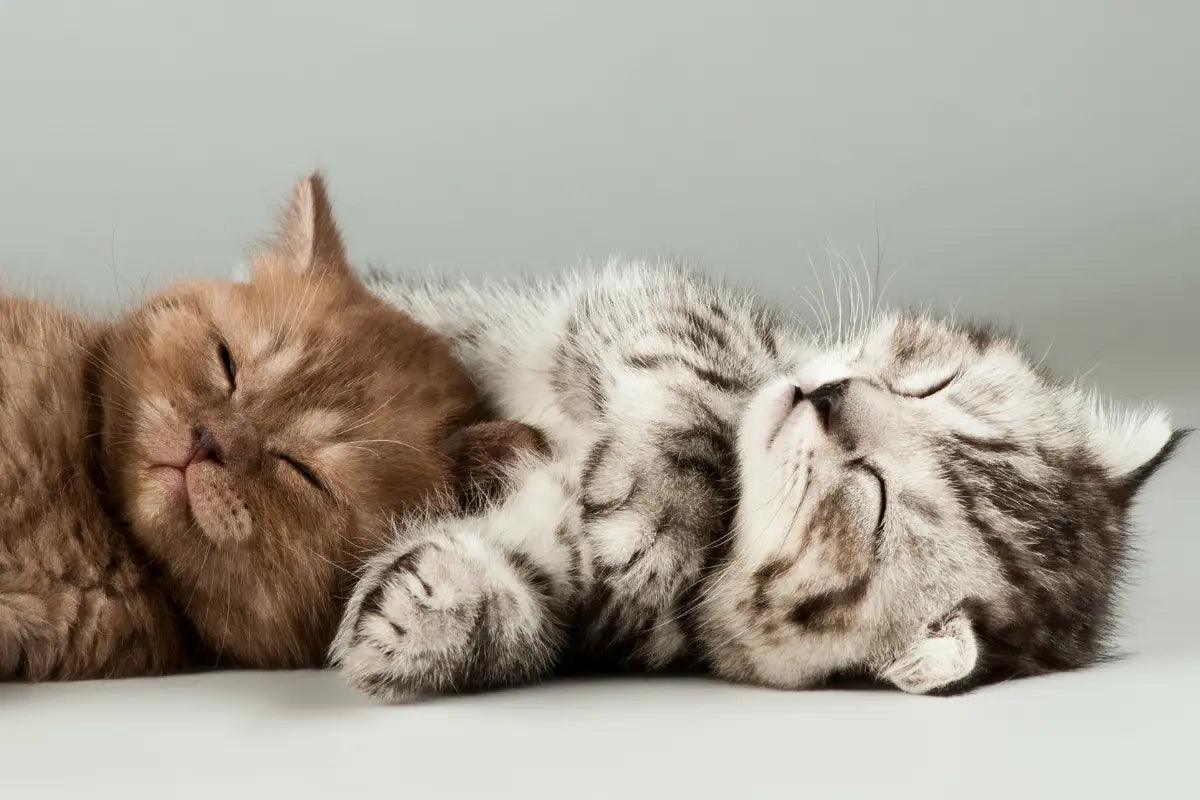Discover the necessary vaccines for your kitten and the recommended schedule, as well as an estimate of the associated costs.
Kitten Vaccination Schedule and Costs

Kittens are most vulnerable to contagious illnesses when they are younger than six months. This is why it's crucial to ensure that your kitten receives the necessary protection through appropriate vaccinations.
Maternal antibodies are transmitted from mother cats to their kittens through breast milk during nursing. While these antibodies provide some level of defense against diseases, they can also hinder or deactivate the body's response to vaccination.
Due to this, core (recommended) vaccinations for kittens commence at 6-8 weeks of age and are administered in subsequent doses every 3-4 weeks until the kitten reaches 16-20 weeks of age. Core vaccines should be given a booster shot one year after the initial series.
Core vs. Non-Core Kitten Vaccines
Cat immunizations come in two categories:
Essential cat immunizations safeguard against highly prevalent and/or specifically perilous illnesses, and they are advised for all kittens and adult cats.
Non-essential immunizations are suggested only for cats at a high risk of contracting a disease. In the instance of non-essential immunizations, your veterinarian will evaluate your cat's lifestyle to determine the disease risk and whether it outweighs the vaccination risk.
What Vaccines Does a Kitten Need?

All kittens should receive two vaccines, and some veterinarians highly recommend a third vaccine.
FVRCP
All young cats should be given a vaccine that guards against feline rhinotracheitis, feline calicivirus, and feline panleukopenia (FVRCP). These illnesses are widespread in the general cat population.
Immunity against all three of these viruses is generally included in a combined vaccine.
- Feline calicivirus is one of the most prevalent causes of upper respiratory infections in cats.
- Feline viral rhinotracheitis is highly transmissible between cats and is a major cause of upper respiratory infections; it is caused by feline herpes virus type 1. Infected cats will always be carriers of the virus.
- Feline panleukopenia is highly contagious between cats and is caused by feline parvovirus.
The kitten vaccination plan for FVRCP can start as early as six weeks of age. Kittens receive vaccinations once every 3-4 weeks until 16 weeks of age or older. To prevent excessive vaccinations, most veterinarians will suggest commencing the vaccine at eight weeks of age, followed by two booster shots: one at 12 weeks and another at 16 weeks old.
Rabies
Rabies, another essential vaccination for kittens, is a fatal disease that can impact cats and various other animals, including humans. Depending on state regulations and the veterinarian's recommendation, your kitten can get a rabies vaccination at 12 weeks of age or later.
FeLV
Some veterinarians may recommend the FeLV vaccine for all kittens, while others suggest it only for kittens at risk of disease. It's important to consider your pet's lifestyle and have a conversation with your vet to make the decision.
FeLV is a viral disease that mother cats can sometimes transmit to kittens through close contact with other infected cats. Prior to vaccination, kittens should be tested for FeLV. Vaccination can start at 8 to 12 weeks of age and necessitates a booster vaccine administered 3-4 weeks later.
Kitten Vaccination Schedule

6-8 weeks: FVRCP is necessary, and FeLV is highly recommended
- FVRCP is necessary
- FeLV is highly recommended
10-12 weeks: FVRCP is necessary for the second time; FeLV is highly recommended
- FVRCP is necessary for the second time
- FeLV is highly recommended
14-16 weeks: FVRCP is necessary for the third time, Rabies is legally required, FeLV is highly recommended
- FVRCP is necessary for the third time
- Rabies is legally required
- FeLV is highly recommended
1-year booster: FVRCP booster is necessary, Rabies booster is legally required
The price of each vaccine generally falls between $25 and $50, based on the maker and your location. Typically, your kitten will need a physical check-up before receiving vaccinations to ensure they are fit and healthy.
The first check-up is typically conducted by the vet, and subsequent check-ups may be carried out by either the vet or a certified technician. On average, the initial check-up may cost anywhere from $40 to $60. The cost of follow-up visits could be lower if performed by a technician.
Kitten Vaccine Side Effects

It is rare for vaccinations to cause severe side effects, but if they do occur, they are generally mild. In rare cases, unexpected severe reactions may happen. Your veterinary team should inform you about these potential problems so that you are aware of what to look out for.
Mild side effects may include:
- Fatigue
- Low-grade fever
- Soreness at the injection site
- Swelling at the injection site
More serious side effects may involve:
- Swelling of the face
- Development of hives on the body
- Difficulty breathing
- Shock
If you notice serious side effects in your cats, seek veterinary care immediately.
If you have any worries about your kitten following vaccinations, get in touch with your veterinarian or take your pet to see the vet. They will assess whether it is safe to continue with the vaccination series and might suggest administering an antihistamine to your cat beforehand.





















